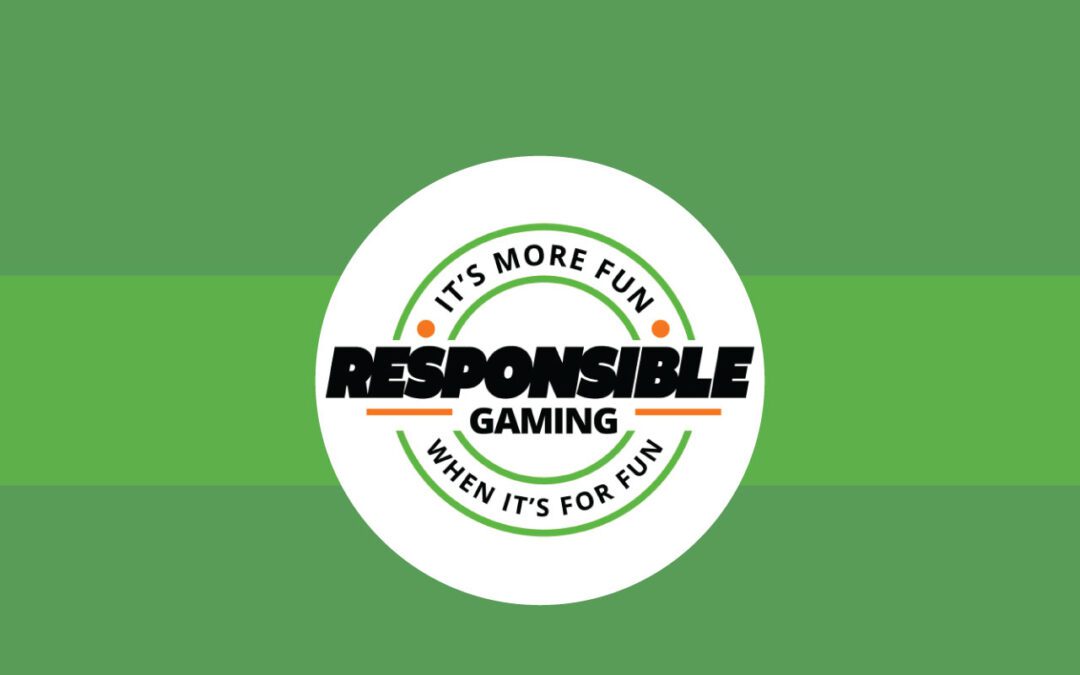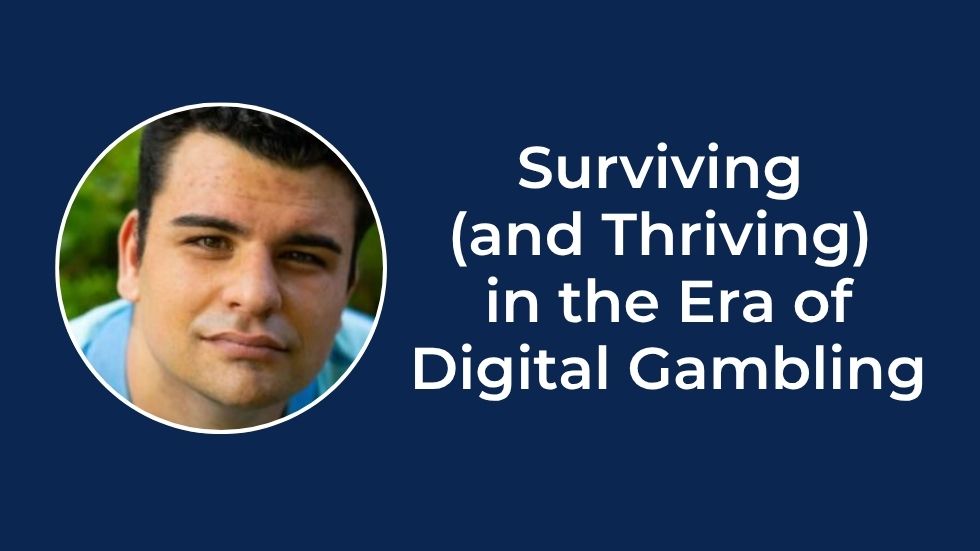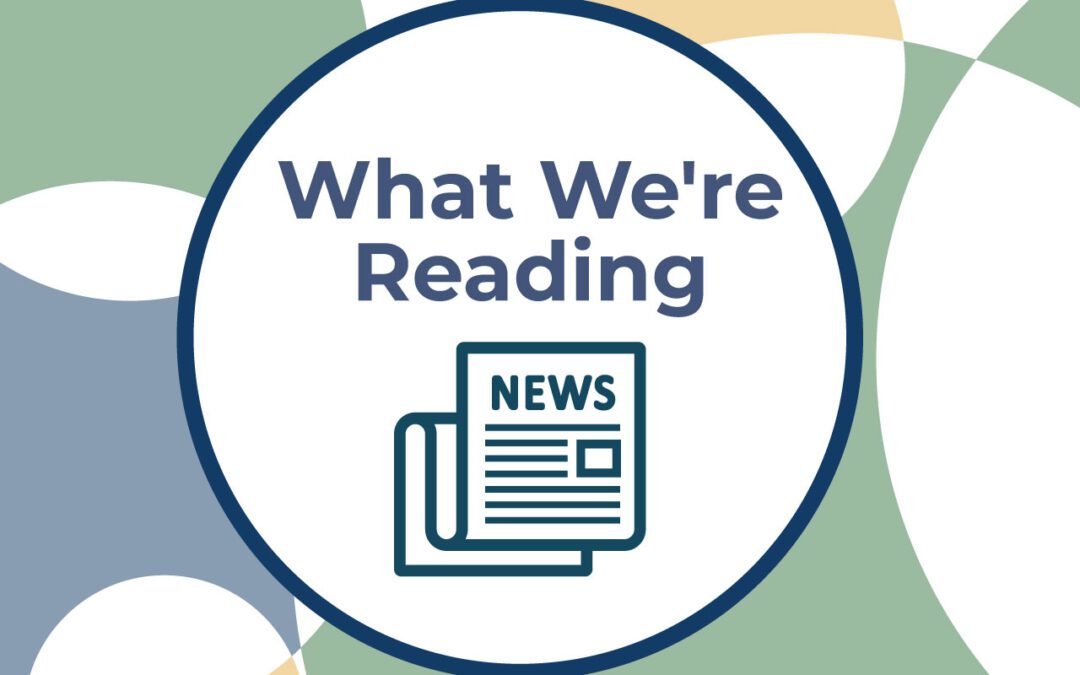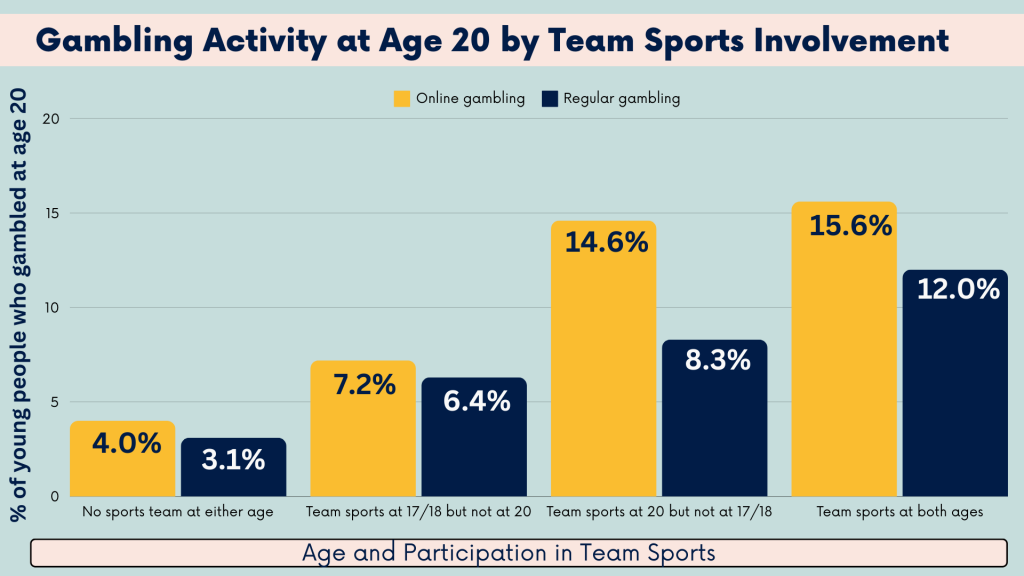
Dec 17, 2025 | HEALTHY PLAY, HELP, PROBLEM GAMBLING, RESOURCES, SPORTS BETTING
MNAPG posed questions to Lori Kalani, DraftKings’ chief responsible gambling officer to learn more about DraftKings’ problem gambling efforts. Below are her responses:
MNAPG: We understand that My Budget Builder and My Stat Sheet are new responsible gaming (RG) tools for DraftKings. Can you share more about them?
LK: My Budget Builder guides customers through a simple process to set personalized entertainment budgets, reminders and limits. My Stat Sheet provides customers with a clear personalized snapshot of their play activity, including time spent, deposits, withdrawals, wagers and outcomes. Both are designed to help customers make informed decisions and play responsibly.
MNAPG: What information is included with alerts and does anything happen if a customer exceeds the limits they set?
LK: We proactively encourage every player to set budgets for their deposit amounts, play time and size of bets, and we provide access to a range of tools and resources with which they can engage. Customers receive reminders when they approach the limits they’ve set. If a limit is reached, the platform enforces it automatically—for example, preventing additional deposits or gameplay until the current limit resets. Once a limit is set, it cannot be increased or cancelled until the timeframe for the limit has ended. More restrictive limits can be added at any time.
MNAPG: How many customers are currently using some of DraftKings’ responsible gaming tools and resources?
LK: Since launching our Responsible Gaming Center in 2024—a centralized hub for all the DraftKings RG tools and resources available at rg.draftkings.com—more than 5.6 million customers have visited. Approximately 3.5 million unique customers have used My Stat Sheet since the industry-first tool was introduced early last year. This June, we launched our newest tool, My Budget Builder, and we expect usage to increase throughout the NFL season.
MNAPG: How do you help make customers aware that these tools and resources exist?
LK: We highlight responsible gaming tools and resources throughout the customer journey. Some examples include promoting RG tools and resources at onboarding, in-app messaging, emails and various campaigns throughout the year. Within the app and online, an RG shield icon appears at the top of the screen, making the DraftKings Responsible Gaming Center just one click away so that tools and resources are seamlessly available as part of the product experience. To mark this year’s Responsible Gaming Education Month, we launched an NFL sweepstakes that incentivizes customers who use tools like My Budget Builder and My Stat Sheet with the chance to win weekly NFL ticket prizes, culminating in a grand prize trip to the Super Bowl.
MNAPG: Do you work with any external organizations or researchers to improve your responsible gaming efforts?
LK: Yes. We work with organizations such as the Cambridge Health Alliance, BetBlocker, Evive, the Responsible Online Gaming Association (ROGA) and the International Center for Responsible Gaming. Our work with Cambridge Health Alliance includes expanding research on responsible gaming and facilitating new opportunities to educate customers about the tools and resources that are available to help them play responsibly. We also provide funding to the National Council on Problem Gambling. DraftKings’ State Council Funding (SCF) program provides annual donations to 35 state problem gaming councils across the country to support their work. Since announcing the SCF program in 2022, we have donated millions of dollars, including to the Minnesota Alliance on Problem Gambling. (Editor’s note: MNAPG used the funds provided by DraftKings to develop a pilot casino employee training program that’s currently being tested at Canterbury.)
MNAPG: Do you proactively identify customers who may be having challenges? If so, how is this done?
LK: We proactively encourage every player to set budgets for their deposit amounts, play time and size of bets, and we provide access to a range of tools and resources with which they can engage. We use modeling techniques and advanced technology, including machine learning, to help identify when someone may no longer be playing for fun, which is then reviewed by our Responsible Gaming team for further analysis.
MNAPG: Does DraftKings work with the other members of the Responsible Online Gaming Association (ROGA) to ensure that if one of your customers is given a time out or excluded that it is active across all the other platforms?
LK: Today, most jurisdictions where we operate maintain shared exclusion databases, which are distributed to all licensed operators. In some states, operators also contribute their own self-exclusion data. While there isn’t yet an industry-wide system among operators, through ROGA we have announced the creation of a centralized exclusion clearinghouse. The first phase will introduce a national shared self-exclusion list so that when a player self-excludes with one member operator, that exclusion will also extend across all ROGA member platforms.
MNAPG: How do you see your RG tools and resources evolving over the next 2–3 years?
LK: In the next few years, we expect RG tools and resources to further evolve through AI and personalization. Smarter technology will allow these tools and resources to adapt dynamically, making them even more intuitive and seamless to the customer.
MNAPG: How do you measure success in responsible gaming initiatives?
LK: We consider, among other things, adoption rates, customer feedback and independent evidence-based research as we continue to enhance our responsible gaming tools and resources. Success means responsible play continues to be embedded in the DraftKings experience for every customer.

Nov 19, 2025 | SPORTS BETTING, STORIES
By Saul Malek
Read the original article on the BASIS here.
Editor’s note: This op-ed was prepared by Saul Malek, a professional speaker specializing in gambling addiction prevention and education. Saul developed a gambling addiction as a college sophomore, losing money, time, relationships, and nearly his life. Since entering recovery in 2019, he has become an in-demand speaker, sharing his story with schools (both high school and college), athlete mental health organizations, suicide prevention groups, parent groups, popular news outlets (including the New York Times, National Public Radio, Public Broadcasting Service, and Dallas Morning News). He has keynoted conferences including the Connecticut Council on Problem Gambling annual conference, the Wisconsin Council on Problem Gambling annual conference, and Mental Health America Greater Dallas Adolescent Symposium. He has appeared on Dr. Phil Primetime and was a TedX speaker at the University of Alabama at Birmingham. This op-ed is part of our Special Series on Addiction and Technology, which was funded by a research and consulting contract with DraftKings.
 The most popular athletes in 2017 included LeBron James, Tom Brady, and Simone Biles. It was a different star’s name, however, that caught my attention that year- Tatjana Maria, a veteran on the women’s professional tennis circuit.
The most popular athletes in 2017 included LeBron James, Tom Brady, and Simone Biles. It was a different star’s name, however, that caught my attention that year- Tatjana Maria, a veteran on the women’s professional tennis circuit.
Sometime during the fall of 2017 Maria was playing in a tournament. Who she played against? I don’t know. Where the tournament was? Couldn’t tell you… I don’t even remember what date the match was on.
What I can tell you, with certainty, is this: I was sitting on the toilet in my college dormitory, preparing for a night out with friends, when- I logged on to my newly created online sportsbook account and saw, to my shock, that I could bet on tennis. Before my bookie created the account for me, I’d text him the games I wanted to bet on. Eventually, he grew tired of the texts and thought of a solution: “I can make you an account online,” he said “where I give you a line of credit and you can bet on whatever you want, whenever you want. At the end of the week we’ll square up through Venmo.” I didn’t know I could text, “Hey, give me $100 on Tatjana Maria!” But now, Tatjana Maria (and the never ending world of online gambling) came to me. I was just getting started. Soon, foreign tennis matches wouldn’t be just a mere bathroom pastime- they became an obsession dominating every moment of my life.
For almost two full years, my entire life revolved around gambling. Full games became live bets on halves, quarters, even individual points. Classes skipped, lies told, sleep lost, money chased.
The strangest thing of all? The progression of my addiction all seemed so normal.
Your Dream Life: One Click Away
You may be thinking, “There’s nothing normal about throwing your life away on obscure tennis bets.” Let me explain.
I didn’t start with obscure tennis bets. My first ever sports bet, in September 2017, when I was 19 years old, was a measly $10 wager on a baseball game.
Winning that bet made me feel like a million bucks. I wanted more. Text the bookie. $20 on a football game that weekend. Hey, I’m not bad at this. I should do this more often. This is like a business, tracking my wins and losses. Bookie sets me up an account online. I can bet on tennis? And darts? Increased betting frequency. No more tracking wins and losses. Larger bets with a higher credit limit. Start losing more frequently. Chase losses with desperate long-shots. Lying. Debt. Loans. Bailouts. Live bets, betting 10 times on the same game. Each action made sense to me in response to the last one (at least, at the time). Only after suffering unbearable consequences could I see how off base I really was.
I take responsibility for my gambling. Yet, at the same time, I can’t help but think that the digital nature of my gambling accelerated my problem.
Firstly, as the Tatjana Maria example illustrates, the digital gambling world exposed me to markets I never would’ve known about. Additionally, the digital gambling universe desensitized me to the value of money. Typing in “500” and clicking “bet” feels a lot less real than counting out $500 in cash and carelessly risking it. Another point: ease of access. My dream world of gambling was only a click away from me at all times. Feeling down? Place a bet. Feeling a confident high? Reach into my pocket and place another bet. No waiting around, no driving to a physical betting shop.
It is easy to feel overwhelmed in the world of digital gambling. However, in my experience, there are also more opportunities than ever to be connected with help.
Getting Your Life Back: One Click Away
I first sought help for my gambling problem in August of 2018, almost a full year before I finally quit gambling. I attended in person Gamblers Anonymous meetings, by far the youngest member at only 20. GA has been a lifesaver for me, I still attend meetings to this day. But in those early, inconsistent days where I was yet to hit a “bottom” in my gambling, the internet is what kept me hanging on.
Reddit played a pivotal role in keeping me connected with others in recovery. Through this online platform, I made close connections on the “problem gambling” subreddit, often with members close in age. Reddit introduced me to Jeff, a prominent voice in gambling harm prevention, who worked to establish Skype (pre-Zoom) meetings for people struggling. Just as the digital gambling landscape was available 24/7, so was my Reddit connection.
Professional help for a gambling problem is not always easy to find. Fortunately, my parents connected me with a therapist specializing in gambling addiction who offered virtual sessions. Visits with this therapist were essential in formulating a payment plan with my creditors, easing pressure that otherwise may have led me back to gambling.
Now professionally involved in gambling harm prevention, I can’t imagine broadcasting my message without the power of the internet. LinkedIn, Instagram, YouTube… all essential. How cool is it to share ideas with prevention specialists in Africa? Very cool… and also possible!
In Closing
Technology, like many tools, can be used or abused. It is important to not only see technology’s downsides, but also the opportunities for prevention, recovery, and treatment that are afforded by the digital gambling landscape. It is practically impossible to avoid digital connection these days- thus individuals should be taught to best maximize their tech use for positive outcomes.

Sep 5, 2025 | PROBLEM GAMBLING, SPORTS BETTING
This article, published in USA Today, provides a great depiction of how young men are immersed in high-risk sports betting.
This article highlights the lack of oversight for the digital environments children access online through the metaverse, certain video games and apps, and emphasizes the challenges parents face in protecting their kids.
Sweepstakes operators rely on the legality of their “promotional contest” model, which requires a free method of entry to preserve their claim to non-gambling status. It’s a gray area that seems very gambling-like, but is not subject to regulatory attention.
This USA Today article (published June 3, 2025) explores the rising crisis of sports betting addiction among young men, particularly college-aged and early adults. It highlights how easily accessible mobile betting platforms, aggressive marketing tactics and features like in-play bets are fueling compulsive gambling, while warning that the U.S. lacks comprehensive treatment infrastructure or national tracking of gambling disorders.

Jun 18, 2025 | PROBLEM GAMBLING, SPORTS BETTING
The NCAA is considering a significant revision to its sports betting policy that would permit student-athletes, coaches and staff to wager on professional sports, while maintaining the existing ban on betting related to collegiate athletics. This potential policy shift, currently under discussion by the Division I Council, follows a 21–1 vote by the Division I Board of Directors in favor of deregulating the prohibition on professional sports wagering. If approved, the changes could be implemented as early as June 2025.
With legalized sports betting now available in 40 states, the NCAA’s current blanket ban has become increasingly challenging to enforce, often leading to disciplinary actions for minor infractions involving low-stakes bets. By allowing betting on professional sports, the NCAA aims to reallocate its enforcement resources to focus on more serious threats to the integrity of college sports, such as point-shaving and game-fixing.
The NCAA is also exploring the implementation of harm-reduction strategies, including safe harbor provisions and reduced penalties for individuals who seek help for problem gambling. This approach reflects a broader shift in the NCAA’s stance on sports betting, emphasizing education and support over punitive measures.
Lastly, the NCAA and Genius Sports have expanded their partnership, with Genius Sports becoming the exclusive provider of official NCAA game data to licensed sportsbooks for all post-season tournaments, including March Madness, through 2032.
This potential policy change aligns with the NCAA’s recent initiatives to modernize its approach to sports betting, as evidenced by its expanded partnership with Genius Sports to distribute official game data to licensed sportsbooks.
MNAPG’s Take
While MNAPG is officially gambling-neutral, we have concerns that the NCAA is capitulating to the pressures of ever-growing sports gambling. While we applaud the NCAA’s exploration of harm-reduction strategies, we fear the long-term implications of these developments will be serious for college students and athletes.
Some of the real-time data provided by Genius Sports to sportsbook is used to generate and continuously update odds for various in-play prop bets, such as “next goal scorer” or “next touchdown.” Given the high risks involved with prop bets, we think the ready and uniform availability of official data will only feed this concern.

Aug 7, 2024 | SPORTS BETTING
Ads for parlay bets are pervasive on sports television. And, not surprisingly, they have become quite popular. How do these bets work, why are they so popular and what risks do they hold, particularly for problem gamblers?
In sports betting, a parlay bet is when a bettor makes two or more bets and combines them into one wager. Depending on the sportsbook or the region, these bets may be called “accumulators” or “multis.”
The gambler must win every small bet to win the parlay bet, and losing just one of the smaller bets loses the parlay. A sportsbook typically provides larger payouts as more games are added to each parlay. Parlay bets are riskier since they comprise many individual chances but give a bigger payout if all individual wagers win.
As an example, someone might bet on the Minnesota Vikings and Chicago Bears to win and the Green Bay Packers to lose on a given weekend. All three of these things must happen for the gambler to win money.
Bettors like parlays because they can generally risk less and win more. This is because they perceive less risk. The more legs of a parlay you add, the higher the payout but the more difficult it is to win the parlay.
Many people enjoy the high-risk, high-reward wager and may believe one big parlay win can change everything. This is particularly concerning for problem gamblers chasing losses who think that one bet will allow them to recoup their losses and repay any debt they’ve accumulated.
Same game parlays (SGPs) are a type of parlay that allows the bettor to combine multiple outcomes from the same game. For example, an SGP allows gamblers to bet on a quarterback’s passing yards, a receiver’s receiving yards and total points allowed by a team’s defense.
One advantage from a bettor’s perspective is that they need only watch a single game to see how their wager is faring rather than having to monitor multiple games.
As SGPs have exploded in popularity, almost all large sportsbooks have added them to their offerings. Thanks to heavy advertising before and after national games, SGPs have become more popular than any other betting type.
Given the odds and structures of SGP bets, a bettor is hard pressed to come out ahead over the long term. For bettors at risk for problem gambling, it can be tempting to bet on more and more parlays over time, which can be very dangerous.
Dr. Timothy Fong, a clinical professor of psychiatry at UCLA’s Institute for Neuroscience and Human Behavior, notes particular concerns with SGPs. “From what I understand, the same game parlay now is the dominant form of sports betting wager. In my mind that is like a slot machine bet. It’s not like a single bet on a winner or loser.”
The marketing of parlays by sportsbooks, particularly same game parlays, has increased as they are especially profitable. Popular sportsbooks place pre-built SGPs and parlays on their home pages, often suggesting parlays that relate to the home team, a popular athlete or recognizable sports personality.
Unfortunately, less sophisticated bettors don’t appreciate or understand the edge that’s baked into the odds for sportsbooks. Sports gamblers, as well as those who work with problem gamblers, should understand the danger of these types of bets.

Apr 18, 2024 | RESEARCH, SPORTS BETTING, YOUTH GAMBLING
Read the original article on The BASIS Here.
Written by: Kiran Chokshi
Editor’s note: This month’s WAGER was written by Kiran Chokshi, a high school senior from New York who’s interested in research about sports betting.
Many of us participated in team sports when we were younger, and some still play. Gambling has become increasingly present in sports in recent years as a result of the U.S. Supreme Court’s May 2018 decision, which expanded sports betting in the U.S. Researchers have begun to examine gambling behaviors among athletes themselves, and an open question is whether adolescent team sport participation might make one more likely to gamble later in life as a young adult. This week, The WAGER reviews a study by Brendan Duggan and Gretta Mohan which examined the associations between young people’s gambling behaviors and participation in team sports.
What were the research questions?
(1) Does exposure to a team sports environment in late adolescence lead to a greater likelihood of engagement in gambling as a young adult? (2) Are there gender differences in this relationship?
What did the researchers do?
The researchers collected data from Growing Up in Ireland (GUI), a longitudinal study with 2 waves of data for 5,190 participants born in 1998. Participants were asked in both waves (at age 17 or 18 in 2015 – 2016, and at age 20 in 2018 – 2019) if they participated in team sports, and also if and how often they participated in gambling activities online or in person. Participants who reported gambling once a month or more were considered to be regular gamblers.
What did they find?
The researchers found that about one-third of participants took part in team sports, and males were more likely than females to play team sports and gamble at both waves. For both males and females, team sport participation significantly predicted future gambling engagement, both in terms of online gambling and regular gambling behavior. Participants who took part in team sports at both ages 17/18 and at age 20 had 2.44 higher odds of engaging in online gambling and 2.99 higher odds of being a regular gambler at age 20, when compared to participants who did not engage in team sports at either wave. When looking at the sample of males only, these relationships were stronger; males who participated in team sports at both waves had 3.8 higher odds of online gambling and 4.02 higher odds of gambling regularly, when compared to males who did not play team sports in both waves.

Figure. Figure shows the percentage of participants engaging in online or regular gambling based on their participation in team sports. Total N = 5,190. Adapted from Duggan & Mohan (2022).
Why do these findings matter?
Many professional sports teams and leagues are embracing betting and collaborating with sportsbooks, with some going so far as to sign sponsorship deals. Although gambling is prohibited to some extent among athletes at most levels of competition, problem gambling is a potential risk among amateur and professional athletes. The results from this study highlight how adolescent team sport participation predicts future online and land-based gambling, which could potentially lead to Gambling Disorder. Interestingly, many prevention groups, such as the New York State Office of Addiction Services and Supports, recommend participation in team sports, clubs, and community groups as a positive outlet; however, this research suggests that kids who are playing sports might benefit from targeted public health programs about problem gambling. Future research should test the effectiveness of these prevention programs among amateur and elite athletes alike.
Every study has limitations. What are the limitations in this study?
Although the sample size in this study was large, all of the participants were from Ireland, so it’s unclear if these findings are generalizable to people in other countries with different gambling practices. The data in this study was also self-reported, so might under- or over-report actual gambling behaviors. A more specific limitation of the study is that it did not track the amount of gambling spending per person, so the authors were unable to determine how much money each participant spent or lost while gambling.
For more information:
If you or anyone you know has a gambling problem, visit the National Council on Problem Gambling for tools and resources to help. Resources for preventing underage gambling are also accessible through YouthDecide. For additional resources, including gambling and self-help tools, visit our Addiction Resources page.
— Kiran Chokshi








